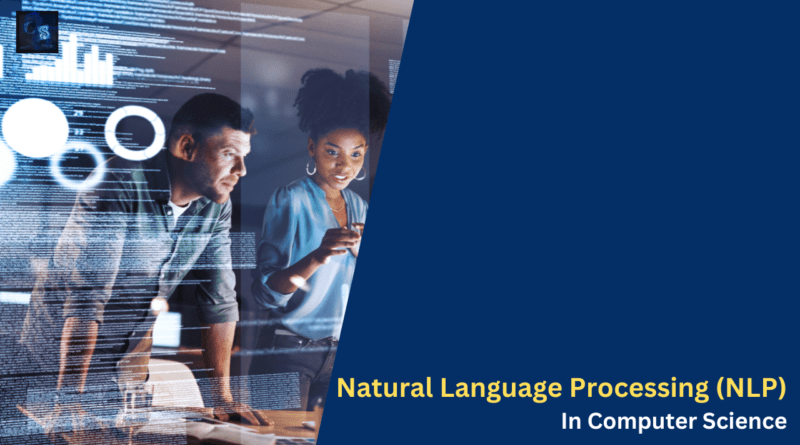Natural Language Processing (NLP) In Computer Science
Hello, guys, welcome to our blog. Here in this article, we will discuss “Natural Language Processing (NLP) in Computer Science, its applications and advantages”.
Ask questions if you have any electrical, electronics, or computer science doubts. You can also catch me on Instagram – CS Electrical & Electronics.
Also, read:
- What is XCP (Universal Measurement and Calibration Protocol)? Introduction, Working, Purpose, Applications
- What Is SIL Testing, Software-In Loop, Working, Purpose
- UDS (Unified Diagnostic Services) Tutorials For Automotive Engineers
Natural Language Processing (NLP) In Computer Science
Natural Language Processing (NLP) is a field of computer science that focuses on the interaction between computers and human languages. It involves the development of algorithms and models to enable computers to understand, interpret, and generate human language in a way that is both meaningful and contextually relevant. NLP plays a crucial role in bridging the gap between human communication and machine understanding. Here are key aspects and applications of NLP in computer science:
1. Understanding Human Language: NLP algorithms are designed to comprehend and interpret human language, including its semantics, syntax, and context. This involves tasks such as part-of-speech tagging, named entity recognition, and syntactic parsing, which enable computers to break down and analyze the structure of sentences.
2. Sentiment Analysis: Sentiment analysis, a subset of NLP, involves determining the sentiment or emotion expressed in a piece of text. This is commonly used in social media monitoring, customer feedback analysis, and brand sentiment tracking. NLP models can classify text as positive, negative, or neutral, providing valuable insights for businesses.
3. Machine Translation: NLP is crucial in machine translation systems, allowing computers to automatically translate text or speech from one language to another. Applications like Google Translate utilize NLP techniques to understand the meaning of sentences in the source language and generate accurate translations in the target language.
4. Chatbots and Virtual Assistants: NLP is the backbone of chatbots and virtual assistants that interact with users in natural language. These systems use advanced NLP models to understand user queries, extract relevant information, and generate appropriate responses. Popular virtual assistants like Siri, Alexa, and Google Assistant rely on NLP for conversational interactions.
5. Information Extraction: NLP techniques are employed for extracting structured information from unstructured text. Named Entity Recognition (NER) is a common NLP task used to identify and categorize entities such as names, locations, and dates in text, contributing to the extraction of meaningful information from large datasets.
6. Text Summarization: NLP is utilized in text summarization tasks, where algorithms analyze large bodies of text and generate concise summaries. This is particularly useful for extracting key information from articles, research papers, or other lengthy documents.
7. Question Answering Systems: NLP powers question-answering systems that can understand user queries and provide relevant answers. These systems often involve language models capable of comprehending the meaning behind questions and retrieving information from relevant sources.
8. Named Entity Recognition (NER): NER is a crucial NLP task that involves identifying and classifying entities such as names of people, organizations, locations, dates, and more within a given text. This information is valuable for applications like information retrieval and knowledge extraction.
9. Speech Recognition: In speech recognition systems, NLP is used to convert spoken language into text. This enables voice-controlled interfaces, voice assistants, and transcription services. NLP algorithms help in accurately transcribing and understanding spoken words.
10. Language Generation: NLP plays a role in language generation tasks, where models are trained to generate coherent and contextually relevant text. This is used in applications such as chatbots, content creation, and automatic text generation.
As NLP continues to advance, it contributes significantly to the development of intelligent systems that can effectively communicate with humans in a natural and meaningful way. Ongoing research and innovations in NLP are driving progress in various applications, making it a pivotal area within the broader field of computer science.
Applications Of Natural Language Processing
Natural Language Processing (NLP) finds a wide range of applications across various industries, leveraging its ability to analyze and understand human language. Here are some key applications of NLP:
1. Chatbots and Virtual Assistants: Chatbots and virtual assistants use NLP to understand and respond to user queries in natural language. These applications are commonly employed in customer support, providing instant assistance and information.
2. Sentiment Analysis: Sentiment analysis, or opinion mining, uses NLP to analyze text data and determine the sentiment expressed—whether it’s positive, negative, or neutral. This is valuable for businesses to gauge customer opinions, reviews, and social media sentiments.
3. Machine Translation: NLP powers machine translation systems like Google Translate, enabling the automatic translation of text from one language to another. This is valuable for global communication and breaking down language barriers.
4. Information Extraction: NLP is used for extracting structured information from unstructured text. Named Entity Recognition (NER) is a specific application that identifies entities such as names, locations, and dates in text.
5. Text Summarization: NLP algorithms can analyze large bodies of text and generate concise summaries. Text summarization is useful for distilling key information from articles, documents, or news stories.
6. Question Answering Systems: NLP powers question-answering systems that can comprehend user queries and provide relevant answers. These systems often involve language models capable of understanding the context and retrieving information from relevant sources.
7. Speech Recognition: In speech recognition applications, NLP is utilized to convert spoken language into text. This is employed in voice-controlled interfaces, transcription services, and virtual assistants that respond to spoken commands.
8. Named Entity Recognition (NER): NER is a crucial NLP task used to identify and classify entities such as names of people, organizations, locations, dates, and more within a given text. This information is valuable for applications like information retrieval and knowledge extraction.
9. Content Classification: NLP is used for automatically categorizing and classifying text content. This is applied in spam filtering, topic categorization, and content moderation on online platforms.
10. Language Generation: NLP contributes to language generation tasks, where models are trained to generate coherent and contextually relevant text. This is used in applications such as chatbots, content creation, and automatic text generation.
11. Clinical Text Mining in Healthcare: In healthcare, NLP is applied to analyze and extract information from clinical texts, medical records, and research literature. This aids in clinical decision support, medical research, and improving healthcare outcomes.
12. Fraud Detection: NLP is employed in fraud detection systems to analyze textual data such as transaction records, emails, or messages for indicators of fraudulent activities. It helps financial institutions and businesses identify and prevent fraud.
13. Resume Parsing and Job Matching: NLP is used in recruitment processes to parse and analyze resumes, extracting relevant information about candidates. It also powers job-matching algorithms to connect candidates with suitable job opportunities.
14. Legal Document Analysis: NLP is applied in legal settings to analyze and extract information from legal documents, contracts, and case law. This facilitates legal research, document summarization, and contract analysis.
As NLP technologies advance, the applications continue to expand, impacting diverse sectors and enhancing the efficiency of various processes that involve human-language interaction.
Advantages Of NLP
Natural Language Processing (NLP) offers a range of advantages across various applications and industries, leveraging its ability to understand, interpret, and generate human language. Here are the key advantages of NLP:
1. Enhanced User Interaction: NLP enables more natural and intuitive interactions between humans and machines. Chatbots, virtual assistants, and voice-activated systems can understand and respond to user queries in a way that mirrors human conversation.
2. Improved Customer Support: Businesses deploy NLP-powered chatbots for customer support, providing instant responses to queries and resolving issues efficiently. This leads to enhanced customer satisfaction and 24/7 availability for support.
3. Increased Efficiency in Data Analysis: NLP facilitates the analysis of large volumes of unstructured text data. This is valuable for extracting insights, sentiment analysis, and deriving meaningful information from sources such as social media, customer reviews, and surveys.
4. Automation of Routine Tasks: NLP can automate routine tasks that involve language processing, such as data entry, document summarization, and content categorization. This streamlines workflows and allows employees to focus on more complex and value-added tasks.
5. Language Translation and Global Communication: NLP powers machine translation services, breaking down language barriers and facilitating global communication. Individuals and businesses can easily translate content from one language to another, fostering collaboration on a global scale.
6. Efficient Search and Information Retrieval: Search engines leverage NLP to understand user queries and provide relevant search results. This enhances the accuracy and efficiency of information retrieval, improving the overall search experience.
7. Automation of Email Responses: NLP is used to automate email responses and categorize incoming emails. This is particularly useful in handling large volumes of emails, prioritizing messages, and ensuring timely responses.
8. Personalization in Marketing: NLP is applied in marketing to analyze customer behavior, preferences, and sentiment. This information is used to personalize marketing messages, recommendations, and content, leading to more targeted and effective campaigns.
9. Medical Text Analysis: In healthcare, NLP is utilized for medical text mining and analysis of clinical documents. This aids in extracting valuable information from medical records, improving clinical decision support, and supporting medical research.
10. Improved Accessibility: NLP technologies contribute to making digital content more accessible. Voice recognition systems, screen readers, and other accessibility tools use NLP to enable individuals with disabilities to interact with technology more effectively.
11. Fraud Detection and Cybersecurity: NLP is employed in fraud detection systems to analyze text data and identify patterns indicative of fraudulent activities. In cybersecurity, it aids in analyzing and categorizing security-related information to identify potential threats.
12. Human Resource Management: NLP is used in HR processes for resume parsing, job matching, and sentiment analysis of employee feedback. This streamlines recruitment improves candidate matching, and enhances employee engagement.
13. Legal Document Analysis: NLP facilitates the analysis of legal documents, contracts, and case law. It helps in summarizing legal content, identifying relevant information, and improving efficiency in legal research.
As NLP technologies continue to advance, the advantages they bring in terms of automation, efficiency, and improved human-computer interaction will likely expand, influencing various aspects of our daily lives and business operations.
This was about “Natural Language Processing (NLP) in Computer Science “. I hope this article may help you all a lot. Thank you for reading.
Also, read:
- 10 Tips To Maintain Battery For Long Life, Battery Maintainance
- 10 Tips To Save Electricity Bills, Save Money By Saving Electricity
- 100 (AI) Artificial Intelligence Applications In The Automotive Industry
- 100 + Electrical Engineering Projects For Students, Engineers
- 1000+ Control System Quiz, Top MCQ On Control System
- 1000+ Electrical Machines Quiz, Top MCQs On Electrical Machines
- 1000+ MATLAB Simulink Projects For MTech, Engineering Students
- 50 Tips To Save Electricity At Home, Shop, Industry, Office
Author Profile
- Content Writer








